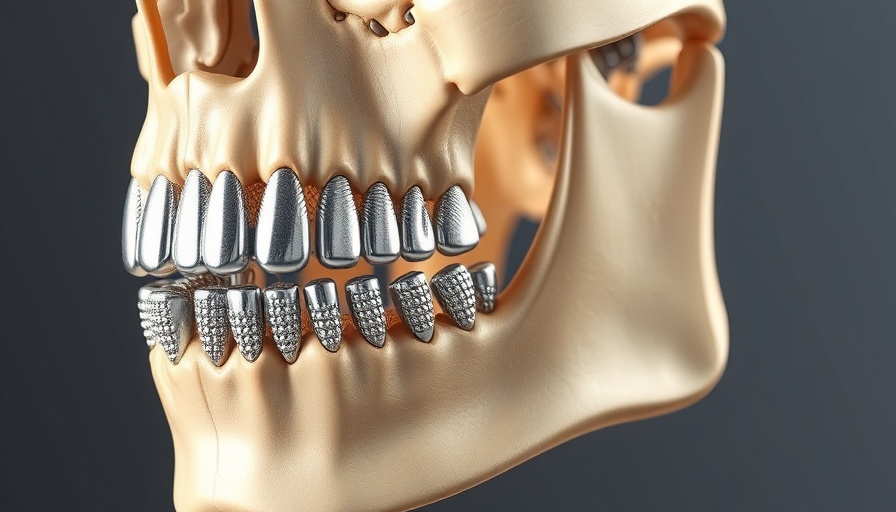
The Remarkable Role of 0.3 mm Thick Titanium Mesh in Dental Procedures
The dental community is buzzing about recent findings that suggest a 0.3 mm thick titanium mesh is the most reliable option for guided bone regeneration (GBR). This claim, stemming from comprehensive research performed by a team at the University of Adelaide, highlights titanium mesh’s significant benefits in dental surgery. Understanding the nuances of this research can empower healthcare providers to make informed decisions that enhance patient outcomes, particularly in complex surgical scenarios.
Why Guided Bone Regeneration Matters
Guided bone regeneration is a crucial procedure in dentistry, particularly for patients requiring implants. It promotes the growth of bone where it is needed and provides a scaffold for new tissue formation. Using proper materials, such as titanium mesh, is vital because it influences healing and the longevity of dental implants. With this new study underscoring the efficacy of 0.3 mm thick titanium mesh, dental professionals are encouraged to leverage this innovative material to improve patient care.
Comparing Titanium and Other Materials: What Sets It Apart?
When it comes to materials used in GBR, titanium consistently outperforms alternatives, such as absorbable membranes. The study conducted at the University of Adelaide emphasizes that titanium's robust mechanical properties and biocompatibility make it an exceptional choice for maintaining stability during the healing process. In contrast, absorbable membranes can lead to unpredictable results as they degrade over time. This difference highlights the importance of material selection in the success of dental regenerative procedures.
Future Predictions: The Expanding Role of Titanium in Dental Innovations
As more research supports the advantages of titanium in GBR, we can anticipate a broader adoption of this material in dental practices. Beyond immediate surgical applications, titanium's versatility may lead to new innovations in the field, including its use in combination with advanced imaging techniques to enhance surgical precision. The materials that we select not only impact the immediate outcomes of surgical procedures but also set the stage for long-term success and patient satisfaction.
Key Insights for Dental Professionals
Understanding the benefits of 0.3 mm thick titanium mesh can empower dental professionals to assess their surgical materials critically. By incorporating evidence-backed choices into their practices, they can offer enhanced care and better long-term results for patients. Ultimately, this information can guide discussions in clinical settings about material selection, patient education options, and post-operative care strategies.
Emotional and Human Impact: What This Means for Patients
For patients, the implications of utilizing more effective materials in dental procedures extend beyond aesthetics. Confidence in their smiles, reduced recovery times, and fewer complications can significantly impact their day-to-day lives. Opting for materials like 0.3 mm thick titanium mesh might also alleviate anxiety regarding dental surgeries, creating a perception that oral health procedures are becoming increasingly sophisticated and patient-focused.
Conclusion: The Path Forward for Dental Innovation
As dental technology progresses, the continuous exploration of promising materials, such as titanium mesh, is warranted. Keeping abreast of findings from leading research institutions can help practitioners stay ahead of the curve, encouraging a shift towards more reliable and effective treatment options. In this rapidly evolving field, making informed choices about surgical materials will not only enhance patient outcomes but also foster a culture of excellence in dental care.
 Add Row
Add Row  Add
Add 




Write A Comment